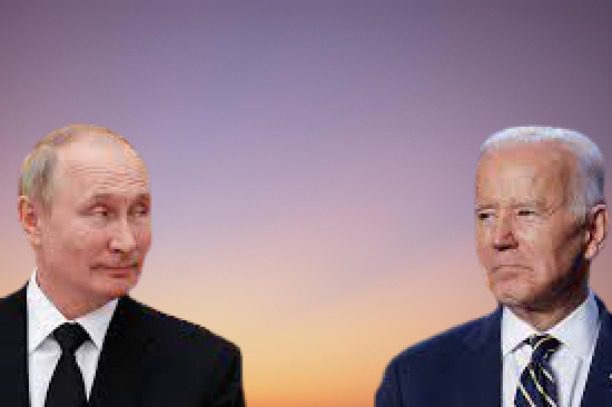Ukraine Quest for NATO Commitments: As world leaders gather in Vilnius, Lithuania for the highly anticipated NATO summit, the unity of the alliance is facing a new test. The focus of this test lies in the divisions among member countries over the assurances to be made to Ukraine regarding its future membership. The prolonged war launched by Russia in February 2021 has entered its 500th day, and Ukraine is urging NATO to provide a detailed path toward membership. However, some member countries seem hesitant to offer the desired assurances.
The Historical Background
During the Bucharest summit in 2008, NATO members assured Ukraine and fellow candidate Georgia that they “will become members” of the alliance. However, despite public pressure from then-U.S. President George W. Bush, the members declined to provide Membership Action Plans (MAP) that would have outlined a detailed roadmap for their membership. Unfortunately, later that year, Russia invaded Georgia, and six years later, in 2014, it seized Crimea.
The Stakes at Vilnius Summit
The impasse over Ukraine’s future membership has raised concerns in Kyiv and among Eastern European NATO members. They fear that the Vilnius summit, which has been touted by the Biden administration as a display of unwavering support, may result in ambiguous commitments similar to those made in Bucharest back in 2008.
Ukraine’s Perspective
Ukrainian President Volodymyr Zelenskyy and his staunchest allies in Eastern Europe argue that clear and defined commitments from NATO are essential. They believe such commitments would boost the morale of Ukrainian fighters engaged in a grueling counteroffensive and serve as a deterrent to Russian President Vladimir Putin, who has been relying on diminishing Western support for Ukraine.
Also Read: Biden Administration Faces Criticism
Division Among NATO Allies
Eastern European and host countries have been vocal and proactive in supporting Ukraine’s membership. However, some Western diplomats caution against being too forward-leaning in their approach. Intensive discussions on updating the commitments made in Bucharest have taken place, but there is a possibility that the outcome may fall short of providing crystal-clear assurances.
Biden Administration’s Stance
The Biden administration has already made it clear that Ukraine will not be offered membership at the Vilnius summit, given the ongoing border conflict. President Biden expressed his belief that Ukraine is not yet ready for NATO membership. He also acknowledged the lack of unanimity among NATO members regarding Ukraine’s accession during the midst of a war.
Security Guarantees and Decision-Making
Sen. Chris Coons emphasized the need for a security guarantee for Ukraine. However, he acknowledged that the decision on NATO membership rests with the 31 member countries. Progress on sustaining critical support during the counteroffensive is expected, but leaving Vilnius with a specific timeline for membership seems unlikely.
U.S. Support for Ukraine
The Biden administration remains committed to supporting Ukraine without escalating tensions to the level of starting a world war. Jake Sullivan, Mr. Biden’s National Security Advisor, assured that Ukraine will receive an exceptional quantity of arms and capabilities from both the U.S. and its allies. However, the administration is cautious not to provoke a full-scale conflict.
NATO’s Multi-Year Assistance Program
NATO Secretary General Jens Stoltenberg announced that the alliance would offer a “multi-year program of assistance” to Ukraine. Furthermore, a NATO-Ukraine Council would be established to upgrade their political ties. Stoltenberg expressed his expectation that allied leaders would reaffirm Ukraine’s future membership and work together to bring Ukraine closer to its goal.
Mr. Biden’s Pursuit of Sweden’s NATO Membership
Alongside Ukraine’s aspirations, President Biden has been actively advocating for Sweden’s NATO membership. Efforts have been made to persuade reluctant NATO members, such as Greece, to support Sweden’s accession. This move is seen as a strategic defeat for Putin, regardless of the outcome on the ground in Ukraine. President Biden’s leadership aims to demonstrate that NATO is stronger than ever before.
Conclusion of Ukraine Quest for NATO Commitments
The Vilnius summit is a critical juncture for Ukraine’s ambitions to join NATO. The country seeks clear and defined commitments that would provide a boost to its fighters and serve as a deterrent to Russian aggression. However, divisions among NATO allies present uncertainties about the outcome. President Biden’s efforts to strengthen NATO and expand its membership highlight the significance of this summit. Ultimately, the decisions made at Vilnius will shape the future of Ukraine’s relationship with NATO and its quest for security and stability.
Our Reader’s Queries
What is the Ukraine proposal for NATO?
Former Chancellor Angela Merkel stood by her 2008 decision to oppose Ukraine’s NATO membership, citing Ukraine’s political situation at the time. On 30 September 2022, Ukraine officially applied for NATO membership.
What is the NATO pledge to Ukraine?
Mr. Stoltenberg declared, “We share your fight, your security, and your values,” during his joint appearance with President Zelenskyy this morning. He promised unwavering support for Ukraine, stating, “We will stand by Ukraine as long as necessary.” This marked President Zelenskyy’s initial visit to NATO headquarters following Russia’s invasion in 2022.
Why is NATO not helping Ukraine?
Why hasn’t NATO deployed troops or implemented a no-fly zone over Ukraine? NATO’s moves are solely defensive, aimed at preventing conflict rather than inciting it. The Alliance is focused on containing the war and preventing it from spreading beyond Ukraine, which could have catastrophic consequences.
What would Russia do if Ukraine joined NATO?
The Kremlin presents the expansion as proof of Western aggression towards Russia, but Western powers refute this claim, insisting that the alliance is purely defensive. Moscow has threatened that if Ukraine joins NATO, it would create long-term issues and has cautioned of an unspecified retaliation to safeguard its security.

